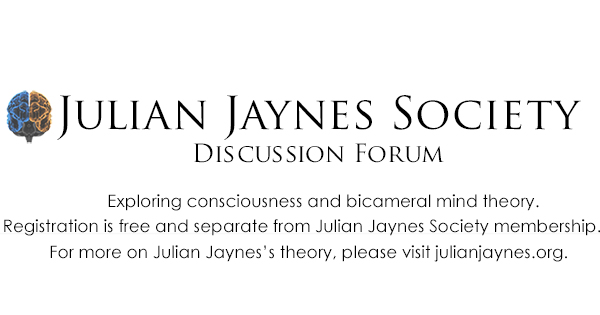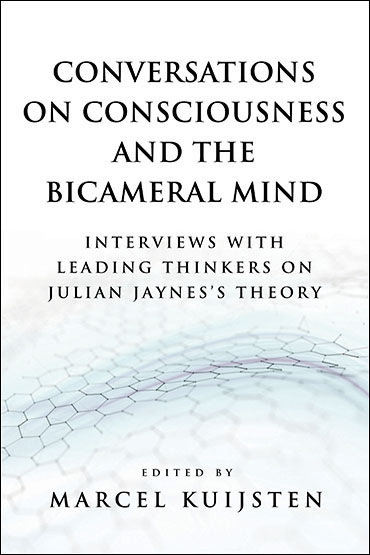At the recent Julian Jaynes Society Conference in Charleston WVA, one speaker, supposedly an expert in Bible history, claimed that much of the Old Testament of the Bible (he mentioned the Exodus and wandering in Sinai in particular) was fiction, with no real support from archeology or other science. The usual claim of that sort is two-fold, i.e. that archaeological evidence is lacking, and/or that references to Biblical persons or events is lacking in surrounding territories and/or the literature of peoples supposedly living at the same time period.
One of the easiest ways to not find something is to look in the wrong place and, in the case of history, there are two ways to do that: you could look in the wrong geographical place, or you could look in what amounts to the wrong TIME period. This gets into the one area of neo-catastrophism or renegade historiography or whatever you want to call it which I am least expert at, but I'm going to try to give you the gist of the story and an idea of where to go looking for info on this sort of thing, if any of you are interested. Hopefully one of you might be; that presentation at the conference should not have gone unchallenged.
As I understand it, most of our ideas about chronology arise from scholarship prior to the 20'th century. Modern scholars with much better tools to work with are in fact working at trying to do a better job of that sort of thing, but it's a massive undertaking.
Getting chronologies wrong messes up historical studies in multiple ways. Suppose for a moment that some historian 1500 years from now were to mistakenly determine that Franklin Roosevelt lived in the middle of the 22'nd century rather than the 20'th. That would, for starters, produce ghost and double images all over the place. There would be two Adolf Hitlers (the one you read about in German literature of the 1930s and 40s, and the one Roosevelt was fighting in the 2140s) and you'd not entertain the idea that they were the same person since they lived 200 years apart. Similarly there would be two Nazi Germanys, two versions of WW-II etc.
The most extreme case of that sort of thing I am aware of is the question of Joseph (of the coat of colors) and the grand vizier (Imhotep) of the pharaoh who built the step pyramid, whose life stories are basically identical despite their supposedly having lived 1800 years apart:
http://www.s8int.com/joseph.html
In fact "Joseph" does not appear to be any sort of a normal Israelite name. It appears only in the story of Joseph in Genesis 36 and 37 and as the name of Mary's husband in the New Testament, and it takes very little in the way of transliteration to get from "hotep" to "Joseph", thus I would assume that "Joseph" is a name borrowed from Egyptian language.
In fact, there are even questions about chronology in AD times. Gunnar Heinsohn of the University of Bremen once told me that, basically, we have good dating schemes from around the time of Christ to the fall of the Roman empire in the West and also from the crusades to the modern age, but not for the time in between. In fact if you want to pick a major historical character as a candidate for never having existed, your best bet is probably Charlemagne, who appears to be a ghost/double image of Frederick II of the Holy Roman Empire, from the time that the Mongols invaded Hungary. There does not appear to be any physical evidence on the planet for Charlemagne or any of the Carolingian kings to have ever existed.
Immanuel Velikovsky wrote a book, "Ages in Chaos" which described some of these problems after noticing that if you move the Egyptian 18'th dynasty forward in time several centuries, then accounts in both nations actually match up afterwards and in fact the Queen Hatshepsut's (18'th dynasty) account of a fabulous voyage to "Punt" matches up with the Bible tale of the "Queen of Sheba's" visit to King Solomon.
Velikovsky had in mind to keep existing ideas about Israelite chronology in place while altering surrounding chronologies by four or five centuries; more recently, scholars who have had more time to devote to the problem have concluded that a much more radical shortening of chronologies including that of Israel is called for.
The four writers who I would recommend that anybody interested in these topics familiarize themselves with are Gunnar Heinsohn, Charles Ginenthal, Emmet Sweeney, and Lynn Rose. This is what I refer to as the 'other branch' of the neo-catastrophist family. The main branch of the family, David Talbott, Wallace Thornhill, Ev Cochrane, Dwardu Cardona et. al. are more concerned with planetary histories, cosmology, plasma physics and the like, rather than the histories of individual nations or chronologies.
I asked Charles about the Exodus and the 40 years in the desert. He noted that 40 was a magical number of sorts to Israelites and that the '40 years' could mean anything and should not be interpreted literally. I don't see Sinai as a big enough place for anybody to get lost in it for very long.
Other than that, the Exodus itself occurred roughly at the time of a semi-major cosmic disaster and would not be expected to leave much evidence above the ground, but there is evidence for it, again if you look in the right place and time period. Moses, David, and Solomon were not figments of anybody's imagination.
Again this stuff is not my specialty in life, but hopefully the info here could get somebody started looking into it.
History and Chronology
Discussion of Julian Jaynes's third hypothesis - dating the development of consciousness to roughly 1500-1200 BCD in Egypt, Greece, and Mesopotamia (the transition occurred at different times in different places around the world). Includes analysis of ancient texts (such as the Iliad, the Odyssey, and the Bible), linguistics, and archeological evidence from ancient civilizations as it pertains to the transition from the bicameral mind to consciousness.
Return to “3.0. Hypothesis Three: Dating the Development of Consciousness”
Jump to
- JJS Forum
- ↳ General Discussion
- ↳ News Items Related to Jaynes's Theory
- ↳ Book Discussion: The Origin of Consciousness and Julian Jaynes Society Publications
- ↳ Myths, Misconceptions, and Fact Checks About Julian Jaynes's Theory
- ↳ Brian J. McVeigh's Random Thoughts
- ↳ Julian Jaynes
- ↳ Conferences, Events, and Local Discussion Groups
- ↳ Lecture Discussion
- ↳ Interview and Q&A Discussion
- ↳ 1.0. Hypothesis One: Consciousness Based On Language
- ↳ 1.01. Hypothesis One: Consciousness Based On Language | Subtopic: Consciousness & Dreams
- ↳ 1.02. Hypothesis One: Consciousness Based On Language | Subtopic: Consciousness in Children
- ↳ 1.03. Hypothesis One: Consciousness Based On Language | Subtopic: Consciousness and AI
- ↳ 2.0. Hypothesis Two: The Bicameral Mind
- ↳ 2.1. Hypothesis Two: The Bicameral Mind | Subtopic: Auditory Hallucinations in Normal Adults
- ↳ 2.2. Hypothesis Two: The Bicameral Mind | Subtopic: Hallucinations & Imaginary Companions in Children
- ↳ 2.3. Hypothesis Two: The Bicameral Mind | Subtopic: Hypnosis, Possession & Altered States of Consciousness
- ↳ 2.4. Hypothesis Two: The Bicameral Mind | Subtopic: Religion & the Bicameral Mind
- ↳ 2.5. Hypothesis Two: The Bicameral Mind | Subtopic: Schizophrenia
- ↳ 2.6. Hypothesis Two: The Bicameral Mind | Subtopic: The Mentality of Pre-Literate & Pre-Modern Peoples
- ↳ 3.0. Hypothesis Three: Dating the Development of Consciousness
- ↳ 4.0. Hypothesis Four: Jaynes's Neurological Model for the Bicameral Mind
- ↳ The Bicameral Mind in Fiction, Film & Popular Culture
- ↳ Information for Students


